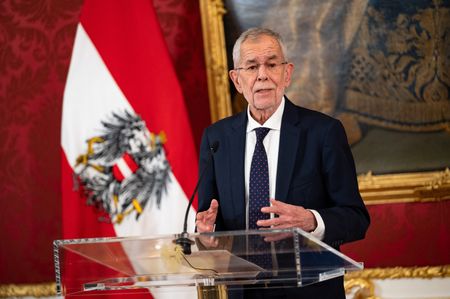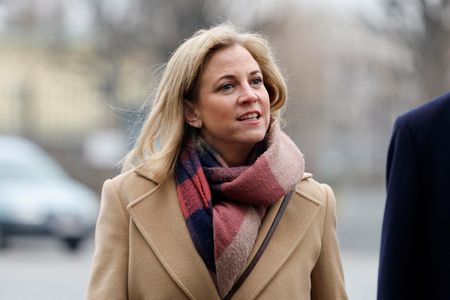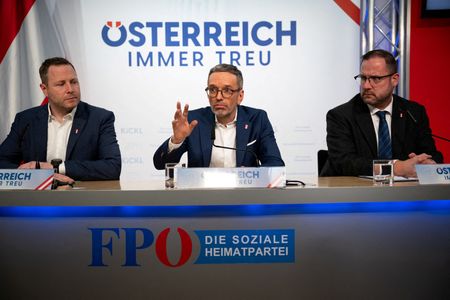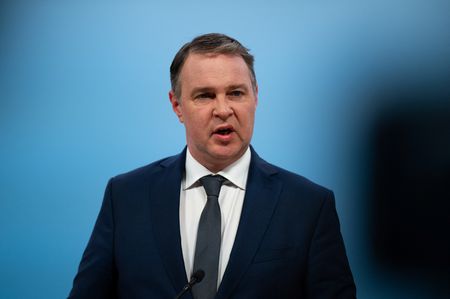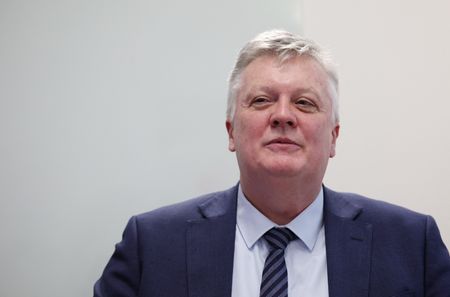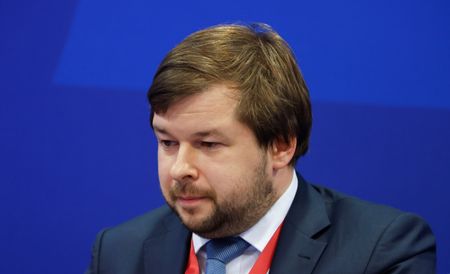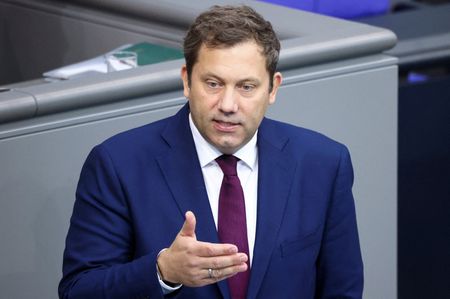By Francois Murphy
VIENNA (Reuters) – Austria’s president sought on Thursday to find a path towards a centrist ruling coalition without the far-right Freedom Party (FPO) after the FPO’s bid to lead a government for the first time failed.
The collapse on Wednesday of the FPO’s talks with the conservative People’s Party (OVP), its only potential coalition partner, sends Austria back to the drawing board four-and-a-half months after a parliamentary election in which the eurosceptic, Russia-friendly FPO came first with around 29%.
This is now the longest it has taken to form an Austrian government since World War Two. Either a ruling coalition, minority government or temporary cabinet of experts is formed, or the country will head for a snap election in which polls suggest the FPO would increase its lead over other parties.
The rise of populism across Europe has made it harder for states to form strong governments, weakening the bloc even as it seeks to rally to revive a weak economy and fend off a confrontational U.S. President Donald Trump and rising global competition.
In an address to the nation on Wednesday evening, President Alexander Van der Bellen, an 80-year-old former Greens leader, said the political landscape was increasingly polarised, and urged the parties to compromise and work together.
“Compromise in Austria is a treasure, a kind of cultural heritage that has always served us well,” he said. It is rare in Austria for a single party to have a majority.
Van der Bellen is due to hold separate meetings with the leaders of all parties in parliament on Thursday except the FPO.
The FPO was only tasked with forming a government last month once a centrist bid excluding it failed. The OVP, which led those three-way talks with the Social Democrats (SPO) and liberal Neos, blamed the SPO for their collapse, as did the Neos, citing an SPO insistence on taxing wealth and inheritance.
The Neos and SPO both say they are open to fresh talks with the OVP.
Reinhard Heinisch, a political scientist at the University of Salzburg, said that since the country came close to an FPO-led government, the threat of that happening again after a snap election could spur the political class to assume responsibility and help forge consensus.
PRESSURE
The political stalemate comes as the Austrian economy has shrunk for the past two years, and pressure is building for a quick deal as all parties agree that the budget deficit, which is set to grow beyond 4% of economic output, must be cut fast.
“I don’t think we have time to hold lengthy negotiations all over again. Everything’s already been negotiated,” OVP leader Christian Stocker said, referring to the centrist talks that reached agreement on many issues, albeit not the thorniest ones.
SPO managing director Klaus Seltenheim said his party was prepared to compromise in talks for a coalition or a government of experts, which would need parliament’s backing.
He told ORF that consolidating the budget, boosting the labour market and keeping prices under control were crucial.
“There were good discussions on that in the past,” he said.
Neos leader Beate Meinl-Reisinger said voters were tired of months of fruitless talks.
“Now it really is about assuming true political responsibility for the country. I think the public has run out of patience,” she told reporters.
(Reporting by Francois Murphy; Additional reporting by Dave Graham, Editing by Alexandra Hudson)

